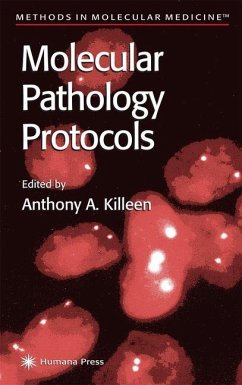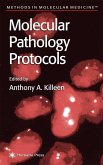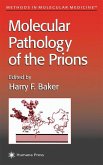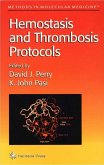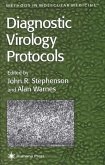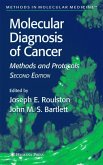The era of molecular pathology has arrived. From its promising beg- nings in research laboratories, the field has grown, and continues to grow, to become a vital part of the care of an ever-increasing number of patients. Because of its recent emergence from the research taboratory, many molecuIar pathology protocols we still to be found in the primary litcramre, and have not appeared in a text. MO~PCU~Q~ Padhoiogy Protocob contains la- ratory protocoIs that have been developed by many of the authors for use in clinical molecular pathology laboratories and describe in detail Row to perform these assays. This book is therefore intended for clinical laboratory use by medical technologists and pathologists. It will dso be of interest to research workers who are performing these assays. In its broadest meaning, pathology is the study of disease, and therefore it follows that any disease for which the molecular basis is understood would be suitable as a topic for inclusion in this work. When seiecting protocols, it was necessary to place limits on the number of chapters that could be feasibly presented in a single work. Those protoculs that were selected are performed more frequently, or have achieved recognition as having important diagnostic utility in contemporary practice. A decision was made to exclude inherited genetic diseases with certain exceptions, such as those diseases that are associated with thrombotic states and are part of the traditional dumain of pathology.
Hinweis: Dieser Artikel kann nur an eine deutsche Lieferadresse ausgeliefert werden.
Hinweis: Dieser Artikel kann nur an eine deutsche Lieferadresse ausgeliefert werden.
"It contains cutting-edge molecular diagnostic techniques with detailed step-by-step instructions and tips to obtain successful results....the purpose here is to offer readily reproducible molecular pathology techniques that are either frequently performed or recognized for their significant diagnostic utility. It is a worthy objective and the editor meets it very well....Certain methodological details are described in the notes, which provide much helpful information in methodology and tips on how to avoid pitfalls. This form of presentation is attractive both to newcomers to the field and to those with some experience in diagnostic molecular pathology....Cutting-edge methods include telomerase, microsatellite instability, chromosomal translocations, and fluorescent in situ hybridization assays....The significant diagnostic utility of molecular protocols in cancer, hermatological malignancies, and virus related diseases is covered well....It is a good protocol resource book in molecular pathology."-Doody's Health Sciences Book Review Journal
"Molecular Pathology Protocols fills a unique niche for general molecular pathology laboratories that may be called upon to perform a wide variety of tests for infectious and noninfectious diseases. It has 35 chapters that provide extensive detail on laboratory protocols for a variety of important conditions, from techniques for preparation of nucleic acid templates and mutation detection for genetic and neoplastic evaluations, to hematological applications, to a limited number of detailed protocols for infectious disease diagnosis and monitoring...The major strength of the protocols discussed in this book lies in their enormous detail and the practical remarks of the authors, which will assist in establishing the assays in a new laboratory. Another great value in some chapters is the emphasis on the assessment of quality control that will meet or exceed all the requirements of agencies that license and regulate clinical laboratories." - Clinical Infectious Diseases
"A must for genetic laboratories and all those using the new molecular biological methods." - Journal of Endocrine Genetics
"Each protocol in this book includes sections of introduction, materials, methods, and notes. Certain methodological details are described in the notes, which provide much helpful information in methodology and tips on how to avoid pitfalls. This form of presentation is attractive both to newcomers to the field and to those with some experience in diagnostic molecular pathology. Most protocols use polymerase chain reaction (PCR) based techniques. Cutting-edge methods include telomerase, microsatellite instability, chromosomal translocations, and fluorescent in sity hybridization assays. This book has good references in both background of diseases and techniques. Most charts and labels have high quality;...The significant diagnostic utility of molecular protocols in cancer, hematological malignancies, and virus related diseases is covered well....This book is well written and the molecular protocols introduced can be easily followed practically." - E-Streams
"Molecular Pathology Protocols fills a unique niche for general molecular pathology laboratories that may be called upon to perform a wide variety of tests for infectious and noninfectious diseases. It has 35 chapters that provide extensive detail on laboratory protocols for a variety of important conditions, from techniques for preparation of nucleic acid templates and mutation detection for genetic and neoplastic evaluations, to hematological applications, to a limited number of detailed protocols for infectious disease diagnosis and monitoring...The major strength of the protocols discussed in this book lies in their enormous detail and the practical remarks of the authors, which will assist in establishing the assays in a new laboratory. Another great value in some chapters is the emphasis on the assessment of quality control that will meet or exceed all the requirements of agencies that license and regulate clinical laboratories." - Clinical Infectious Diseases
"A must for genetic laboratories and all those using the new molecular biological methods." - Journal of Endocrine Genetics
"Each protocol in this book includes sections of introduction, materials, methods, and notes. Certain methodological details are described in the notes, which provide much helpful information in methodology and tips on how to avoid pitfalls. This form of presentation is attractive both to newcomers to the field and to those with some experience in diagnostic molecular pathology. Most protocols use polymerase chain reaction (PCR) based techniques. Cutting-edge methods include telomerase, microsatellite instability, chromosomal translocations, and fluorescent in sity hybridization assays. This book has good references in both background of diseases and techniques. Most charts and labels have high quality;...The significant diagnostic utility of molecular protocols in cancer, hematological malignancies, and virus related diseases is covered well....This book is well written and the molecular protocols introduced can be easily followed practically." - E-Streams

